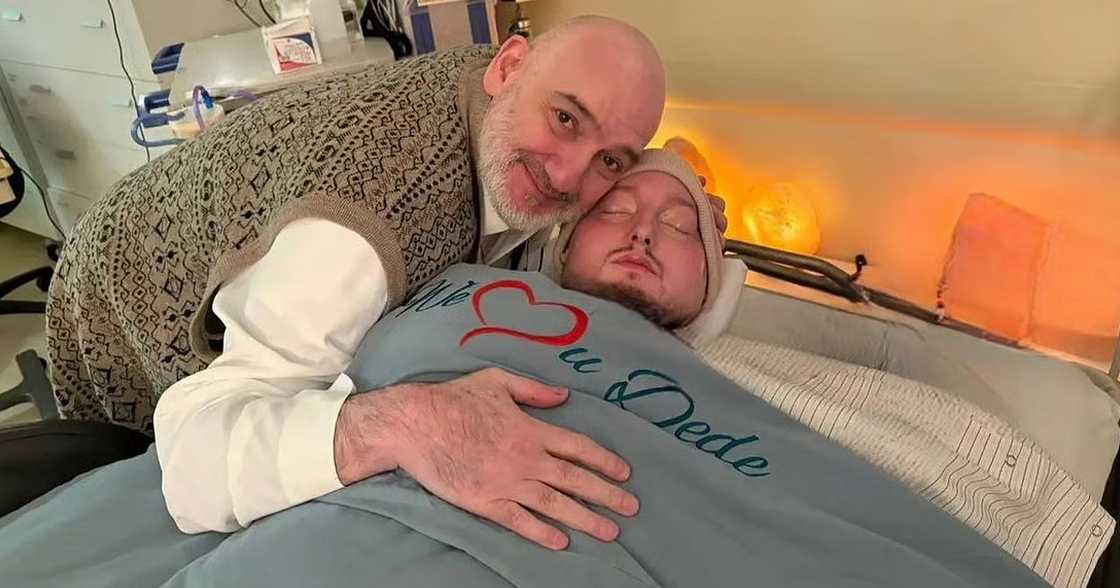Prince Alwaleed bin Khaled bin Talal Al Saud, tragically known as Saudi Arabia’s “Sleeping Prince,” has passed away at the age of 36, after nearly two decades in a comatose state.

Source: Facebook
His death was confirmed by his father, Prince Khaled bin Talal bin Abdulaziz, on Saturday, July 19, bringing an end to a prolonged vigil that captivated attention both within the Kingdom and internationally.
The young prince entered a coma following a severe car accident in London in 2005. Despite the passage of 20 years since the incident, his family, particularly his father, Prince Khaled, maintained an unwavering hope for his recovery.
Throughout this extensive period, Prince Alwaleed remained on life support, a testament to his family’s profound devotion and their consistent belief in a potential divine intervention for his healing.
Prince Khaled bin Talal bin Abdulaziz frequently shared updates on his son’s condition with the public, often posting images and videos that showed the prince in his specialized hospital bed, surrounded by medical equipment designed for his long-term care.
These updates offered a rare glimpse into the family’s private struggle and their profound commitment to their son’s well-being, fostering a widespread sense of empathy and connection among those who followed his story.
The prince’s mother is Princess Monirah bint Abdulaziz bin Musaaed Al Saud. Following the tragic news, his aunt, Princess Reem bint Al-Waleed, also confirmed his passing through a post on her social media account (formerly Twitter/X), sharing a poignant image of her nephew.
This public confirmation underscored the deep sorrow felt by the royal family and their close circle.
The case of Prince Alwaleed bin Khaled bin Talal garnered significant global attention, earning him the moniker “the Sleeping Prince” due to the extraordinary duration of his comatose state.
His story became a symbol of both the advancements in modern medical technology that can sustain life for extended periods and the limits that medicine still faces in reversing severe neurological damage.
The highly specialized medical apparatus supporting his life for two decades was a constant feature in the family’s updates, highlighting the immense resources and dedication poured into his care.
While the exact circumstances of the 2005 car accident in London that led to his critical condition were not extensively detailed in public reports, its impact was clearly devastating, leading to the severe brain injury that left him unresponsive for the remainder of his life.
His passing marks the conclusion of a long and arduous chapter for the Saudi royal family, who had held onto hope for his awakening for nearly two decades.
His story will be remembered as a unique and poignant narrative of enduring family love and perseverance in the face of profound adversity.
News, photos, or videos that arouse the interest of netizens would often go viral on social media, due to the attention netizens give them. These viral posts appeal to the emotions of netizens, and in rare cases, this could also happen to ordinary people, making them very relatable stories.
In other news, a large boulder dislodged and crushed a house and a parked red car in Barangay Camp 7, Baguio City, on Saturday afternoon, July 19. Surveillance footage dramatically showed the moment the multi-ton rock rolled down the slope, impacting the residential structure and vehicle, though no human casualties were reported. While one dog was tragically killed after being trapped near the crushed car, another dog managed a narrow escape, caught on camera just before the impact. Authorities are assessing the site and investigating the geological factors behind the incident, emphasizing Baguio City’s susceptibility to such events, especially during the rainy season.
Still in other news, Rustan’s retail chain matriarch, Nena Vargas Tantoco, confirmed her son Paolo Tantoco died on March 9 while on a work-related trip with his wife, who serves as the First Lady’s social secretary. She clarified that while Paolo used coca1ne, the substance did not come from First Lady Liza Marcos, who had no involvement in his death. Tantoco emphasized the autopsy did not cite overd0se as the cause of death and criticized misleading reports based on incomplete information. She appealed to the public and Senator Imee Marcos to stop politicizing her son’s passing, lamenting its use to deepen divisions in government.





